- Home
- George Eliot
Middlemarch
Middlemarch Read online
Middlemarch
By
George Eliot
New York and Boston
H. M. Caldwell Company Publishers
To my dear Husband, George Henry Lewes, in this nineteenth year of ourblessed union.
CONTENTS
BOOK I
CHAPTER I CHAPTER II CHAPTER III CHAPTER IV CHAPTER V CHAPTER VICHAPTER VII CHAPTER VIII CHAPTER IX CHAPTER X CHAPTER XI CHAPTER XII
BOOK II
CHAPTER XIII CHAPTER XIV CHAPTER XV CHAPTER XVI CHAPTER XVIICHAPTER XVIII CHAPTER XIX CHAPTER XX CHAPTER XXI CHAPTER XXII
BOOK III
CHAPTER XXIII CHAPTER XXIV CHAPTER XXV CHAPTER XXVI CHAPTER XXVIICHAPTER XXVIII CHAPTER XXIX CHAPTER XXX CHAPTER XXXI CHAPTER XXXIICHAPTER XXXIII
BOOK IV
CHAPTER XXXIV CHAPTER XXXV CHAPTER XXXVI CHAPTER XXXVII CHAPTER XXXVIIICHAPTER XXXIX CHAPTER XL CHAPTER XLI CHAPTER XLII
BOOK V
CHAPTER XLIII CHAPTER XLIV CHAPTER XLV CHAPTER XLVI CHAPTER XLVIICHAPTER XLVIII CHAPTER XLIX CHAPTER L CHAPTER LI CHAPTER LIICHAPTER LIII
BOOK VI
CHAPTER LIV CHAPTER LV CHAPTER LVI CHAPTER LVII CHAPTER LVIIICHAPTER LIX CHAPTER LX CHAPTER LXI CHAPTER LXII
BOOK VII
CHAPTER LXIII CHAPTER LXIV CHAPTER LXV CHAPTER LXVI CHAPTER LXVIICHAPTER LXVIII CHAPTER LXIX CHAPTER LXX CHAPTER LXXI
BOOK VIII
CHAPTER LXXII CHAPTER LXXIII CHAPTER LXXIV CHAPTER LXXV CHAPTER LXXVICHAPTER LXXVII CHAPTER LXXVIII CHAPTER LXXIX CHAPTER LXXX CHAPTER LXXXI
PRELUDE
Who that cares much to know the history of man, and how the mysteriousmixture behaves under the varying experiments of Time, has not dwelt,at least briefly, on the life of Saint Theresa, has not smiled withsome gentleness at the thought of the little girl walking forth onemorning hand-in-hand with her still smaller brother, to go and seekmartyrdom in the country of the Moors? Out they toddled from ruggedAvila, wide-eyed and helpless-looking as two fawns, but with humanhearts, already beating to a national idea; until domestic reality metthem in the shape of uncles, and turned them back from their greatresolve. That child-pilgrimage was a fit beginning. Theresa'spassionate, ideal nature demanded an epic life: what were many-volumedromances of chivalry and the social conquests of a brilliant girl toher? Her flame quickly burned up that light fuel; and, fed fromwithin, soared after some illimitable satisfaction, some object whichwould never justify weariness, which would reconcile self-despair withthe rapturous consciousness of life beyond self. She found her epos inthe reform of a religious order.
That Spanish woman who lived three hundred years ago, was certainly notthe last of her kind. Many Theresas have been born who found forthemselves no epic life wherein there was a constant unfolding offar-resonant action; perhaps only a life of mistakes, the offspring ofa certain spiritual grandeur ill-matched with the meanness ofopportunity; perhaps a tragic failure which found no sacred poet andsank unwept into oblivion. With dim lights and tangled circumstancethey tried to shape their thought and deed in noble agreement; butafter all, to common eyes their struggles seemed mere inconsistency andformlessness; for these later-born Theresas were helped by no coherentsocial faith and order which could perform the function of knowledgefor the ardently willing soul. Their ardor alternated between a vagueideal and the common yearning of womanhood; so that the one wasdisapproved as extravagance, and the other condemned as a lapse.
Some have felt that these blundering lives are due to the inconvenientindefiniteness with which the Supreme Power has fashioned the naturesof women: if there were one level of feminine incompetence as strict asthe ability to count three and no more, the social lot of women mightbe treated with scientific certitude. Meanwhile the indefinitenessremains, and the limits of variation are really much wider than any onewould imagine from the sameness of women's coiffure and the favoritelove-stories in prose and verse. Here and there a cygnet is reareduneasily among the ducklings in the brown pond, and never finds theliving stream in fellowship with its own oary-footed kind. Here andthere is born a Saint Theresa, foundress of nothing, whose lovingheart-beats and sobs after an unattained goodness tremble off and aredispersed among hindrances, instead of centring in somelong-recognizable deed.
BOOK I.
MISS BROOKE.

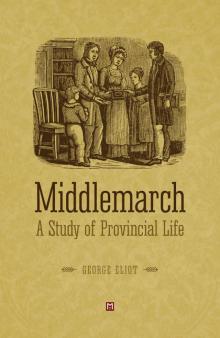 Middlemarch
Middlemarch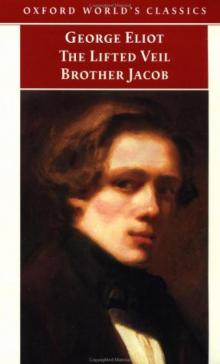 Brother Jacob
Brother Jacob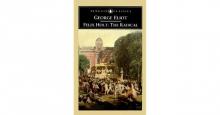 Felix Holt, the Radical
Felix Holt, the Radical Mr Gilfil's Love Story
Mr Gilfil's Love Story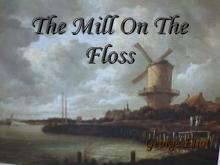 The Mill on the Floss
The Mill on the Floss Silas Marner
Silas Marner Adam Bede
Adam Bede Tom and Maggie Tulliver
Tom and Maggie Tulliver The Damn Fool
The Damn Fool The Lifted Veil
The Lifted Veil Scenes of Clerical Life
Scenes of Clerical Life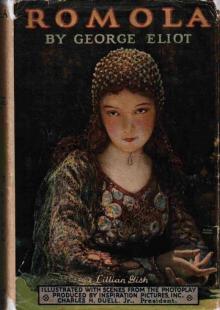 Romola
Romola Daniel Deronda
Daniel Deronda Felix Holt
Felix Holt